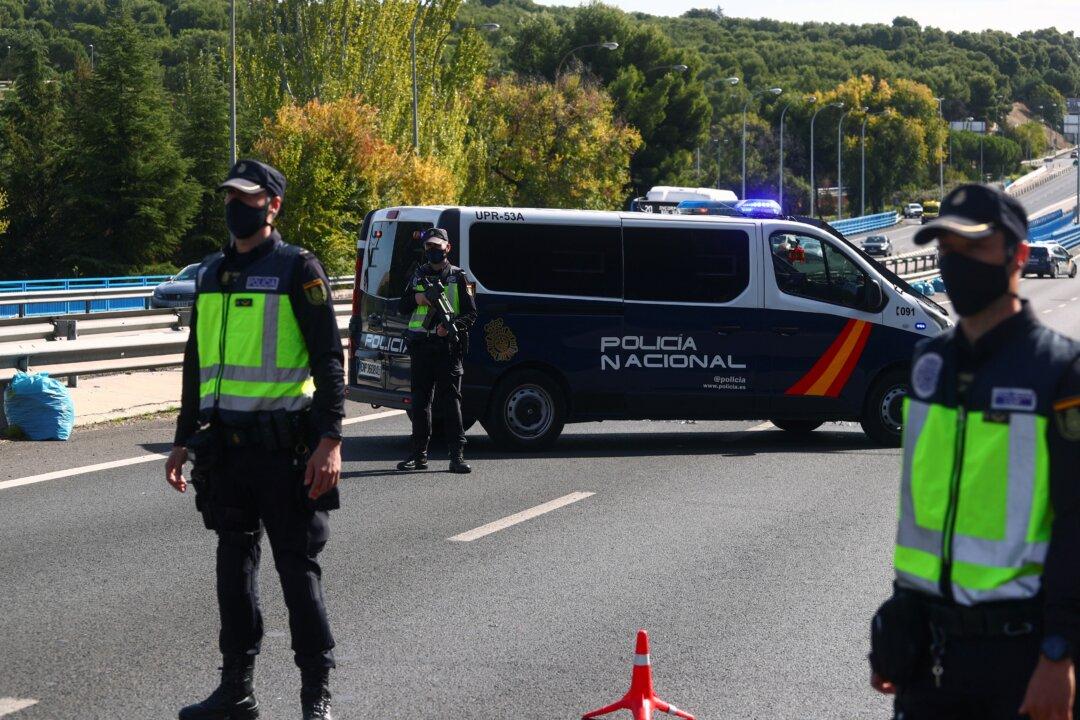MADRID—A Madrid court on Thursday struck down a government order imposing a partial coronavirus lockdown on the Spanish capital, ruling in favor of the Madrid region in a standoff with national authorities just before a long holiday weekend.
Under the Health Ministry’s order, Madrid regional authorities on Friday barred residents from leaving the area, including nine satellite towns, without a valid reason, and imposed other measures to curb the spread of COVID-19 in one of Europe’s worst virus hotspots.





